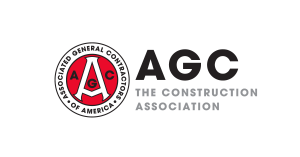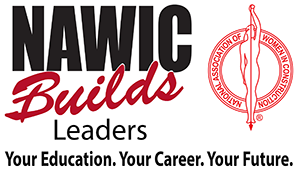
“If you’re looking for a relaxing profession, choose construction management.” - said no experienced construction project manager ever.
While a rewarding career, a PM is on the scene to juggle change orders, large teams of workers and unexpected issues–all while ensuring all work meets expected quality, budget and schedule. If and when things go wrong, you can bet the manager will be the first to hear about it, and frequently, the first to receive the blame. The job can be stressful as it continually keeps project managers on their toes.
High-quality PMs shine as they can handle any tasks that are placed before them. They not only keep up with established budgets and timelines (with the exception of events that are out of their control like force majeure or acts of god), they also find cost-savings without compromising quality or design while having the project finished before the proposed deadline.
Interested in advancing your project and cost management skills? Check out our latest Project Management Master Class.
The reasons why some PMs shine compared to others involves mastering essential education and skills needed to handle such a stressful job. Below, let's take a look at the 12 critical skills of successful construction project managers.
What we cover:
As project changes tend to pile up quickly concerning time and money, it’s vital that managers plan adequately for the project and change.
"Like any other industry in today’s world, construction managers must remain flexible and open to change. This means one must be ready to accept changes on material, regulations, and standards, and have the ability to access the right information quickly to learn and adapt to such changes. With the advancement of technology, internet, and AI, construction professionals must leverage the digital technology to stay relevant in this fast-evolving industry," says Ashkan Sobhi, Asst. Project Manager - Standards & Technology at Brinkman Construction. "Some may call this being tech savvy. While in reality, using the modern technology and experiencing with new tools, is simply just keeping up with the construction industry."
Project managers also need to keep a pulse on all projects that are going on at once, whether it is the laying out of the foundation or mapping the electrical and plumbing lines. This work requires transparency regarding all processes so they can see what is going on, track productivity and make instant changes when a problem appears.
Having this flexibility to make changes requires letting the entire team understand the project's scope during every step of the way. With the project manager creating a knowledgeable team, everyone will be ready to make the changes quickly when required.
There is more than just heavy equipment running on the construction site. Construction crews who are working at all phases of the project require solid leadership skills, motivational skills and accountability while effectively using their emotions to the benefit of the project's goals.
Having emotional intelligence, also known as emotional quotient (EQ), focuses on the human skills of project management that go beyond simple time management and organizational skills.
Studies show that when it comes to spending time on human-related activities, about 10% of high-quality project managers spend 60-80% of their work on these factors while average PMs only spend 8-12%.
"Newer technologies will not solve all your problems -- you have to put in the work. I often see newer rising leaders rely on the technology to do that work. Automation and project management do not happen without the core to put in the work. Older generations and senior superintendents give more respect when they see people work harder. How do you show a generation that is less "tech-savvy" you are working harder? How do you show them with technology? You use your 'emotional intelligence' and people skills along with your technology intelligence and help every day to transfer the senior superintendent knowledge of decades of building experience and put that into your data. That is not taught, that is someone's personal drive and skills to get us to this next phase in our industry while bringing the decades of experience with us," says Russell Padilla II, Project Manager at Guido Construction.
Therefore, construction project managers should take the time to develop their EQ so they can better lead and manage their team to success.
Life is unpredictable, just like construction projects. What separates an average construction manager from a great one is the ability to recognize that.
The wrong materials may have been shipped to the site, or a structural support failed as it sent the project off schedule. A successful project manager understands that risks happen and has a thorough plan in place to handle anything that goes wrong. The PM, as well as the team, has to sit down and identify as many risks as possible before the project begins, so their action plan is actionable when initiated.
That being said, some risks are incredibly difficult to identify and mitigate. PMs ahead of the game will think about solutions to reduce this risk – including technology that incorporates artificial intelligence and machine learning.
Innovations currently exist that can identify a range of risks, from safety issues to potential trade clashes.
Managing construction is much like operating a business. Each project is distinct in its own challenges and teams who grace it. People look up to project managers to plan and initiate processes, monitor work and quickly rebound if a setback appears. Having an natural leadership and entrepreneurial mindset is necessary to reach success as you are managing multiple projects that have a range of scopes, clients and teams working together to create a cohesive and dynamic environment.
"The true mark of a successful construction manager lies in their ability to lead," says Phil Schwarz, Senior Project Manager, Executive Construction Inc. "Effective leadership isn't just about issuing directives; it's about inspiring teams, navigating challenges, and drawing from past experiences to chart a course forward. When issues arise on projects, construction managers draw from years of experience to resolve them with grace. Construction managers also learn from the past to teach others, fostering a culture of continuous growth and refinement, while preventing similar issues in the future. Ultimately, true leadership is the key to every successful project."
When it comes to micromanagement, top PMs throw that idea out the door. The sheer size of projects and the number of teams can make micromanaging everyone a waste of productivity and time. A successful project manager must trust that the workers have the skills to complete the project on time, and the workers need to have trust in their PM regarding the assignment and distribution of given tasks. Although it can feel difficult not to have 100% control over every construction activity, skip getting caught up in the day-to-day minutia and instead focus more on the end goal.
One of the often-overlooked skills of a construction PM is their overall demeanor while at the worksite. Construction crews are scattered throughout the site trying to complete work and meet deadlines as stress can build in team members and lower morale. A project manager who is upbeat, enthusiastic and motivated can raise the spirits of their workers and boost confidence. In turn, this results in better work productivity as a motivated and happy team will feed off that enthusiasm. With the right leadership, staff will end up working harder to meet deadlines as well as key performance indicators.
Many construction mistakes are due to human error because of poor communication. Also, poor communication established with team members can also cause additional problems to be overlooked or solutions not relayed correctly to fix pending issues.
PMs who have outstanding communication skills on and off the worksite can effectively express themselves clearly to the team so everyone can better collaborate together. Employing the right technology can also aid in communication, as working with field collaboration technology helps PMs keep in constant contact with their team members wherever they are located.
Sometimes construction owners want to make massive project changes, or adjustments in the schedule as scope creep begins to enter the project. Their expectations for the construction work isn't always feasible based on specifications, and a smart project manager can be honest and open about such matters. If scope creep appears, or if the owner wants things that teams can't possibly provide, the PM has to say, "No" so as not to make a promise that they can't deliver.
There's nothing worse than having the project that seems to go on forever due to processes always falling short or building finishings being incomplete. While it’s important to step back from being the micromanager, this doesn't mean that construction project managers should just sit in the corner and not be aware of how well or how poorly the project is progressing. Have the ability to close out on projects by always following up on key tasks. Also, if there is a shortfall, take the blame and offer solutions to resolve the issue quickly.
If you’re looking for a useful guide on how to efficiently close out a project, take a look at our post, “7 Steps to Successful Project Closeout.”
The top PMs are always keenly aware of what types of strategies, technologies and methodologies appear in the construction sector that can be leveraged in their planning, project initiation and management goals. Project managers are perpetual learners as they keep up with all strategy changes and what’s on the rise in the industry.
Some interesting construction aspects that are developing include:
Looking to learn the latest cutting edge project management strategies? Sharpen your skills in our Project Management Master Class!
Today’s top construction PMs don’t need to be IT experts. However, they do need to be forward-thinking, especially when it comes to technology. As mentioned above, there are many innovations available to project teams to improve efficiency, communication and quality.
"Today's project mangers need to understand how to leverage technology to keep up with the pace of construction," says Eliseo Estrada, Project Manager at Granite Construction.
The difference between a good and excellent PM is thinking beyond their own job role. Instead of thinking “how can technology help me to my job better,” start to consider how technology can empower your teams. This might involve listening to your team members on their specific needs and pain points. "Using features like bookmarking spec sheets for quick reference, the plan sheet versions to make sure crews build to the latest plans, and understanding the lifecycle of how field issues turn into change orders is paramount for success," adds Eliseo as an example. After all, technology is only powerful if it can be used by people executing the work.
At the end of the day, what’s in the foundation of a high-performing team? It’s trust. While it can be challenging to build trust in construction due to the high turnover and project-based nature of the industry, it’s essential quality to reduce risk.
When team members can trust a construction project manager, it creates a culture of honesty and transparency – affecting everything from communication to motivation. In addition to building the mental and emotional well being of workers, trust can make teams more productive. Eventually, all teams will hit an issue or come to a disagreement. The teams that will move forward and become stronger are the ones with a solid basis of trust.
Furthermore, PMs who build trust with their clients and partners will only help to build stronger projects and companies.
Becoming a successful project manager can be achieved by honing skills and eliminating weaknesses while creating productive teams. If you are a project manager interested in bringing your skills to the next level, here are some helpful resources to get you started:



The world of the project manager has many benefits as well as pitfalls. Honing your skills and using the right set of tools can make your business stand out from the rest so that you can help clients have successful construction projects. Just know, it’s never too late to refine your skills and evolve from an average project manager to a high performing power manager.
What do you think is the number one skill that successful construction project managers should have? Share below in our comments!
Ready to start honing your project management skills? Watch our Master Class series today. See trailer:


May we collect and use your data?
Learn more about the Third Party Services we use and our Privacy Statement.May we collect and use your data to tailor your experience?
Explore the benefits of a customized experience by managing your privacy settings for this site or visit our Privacy Statement to learn more about your options.